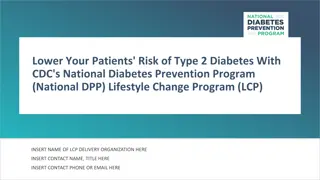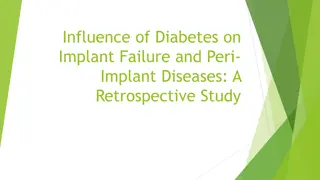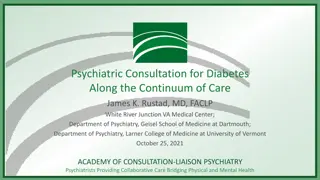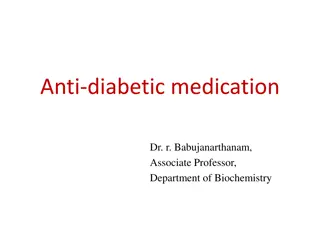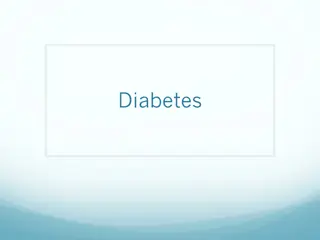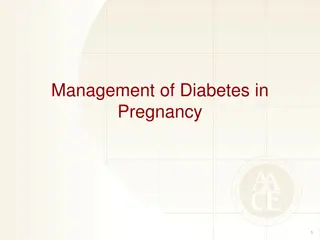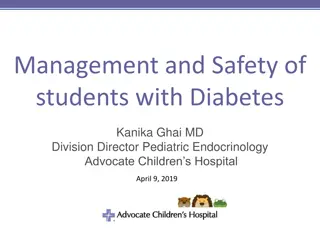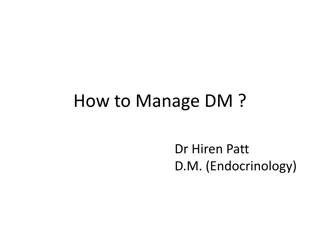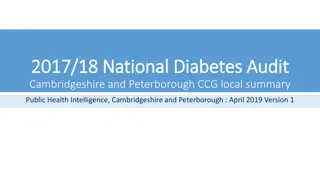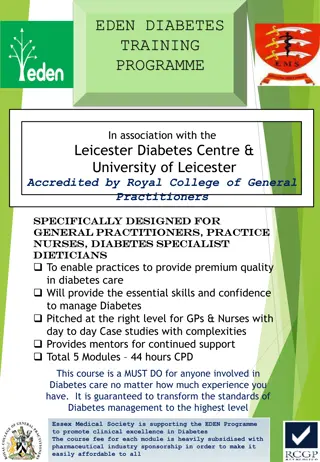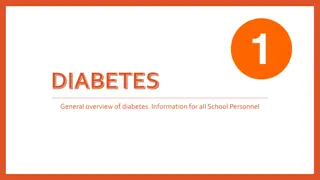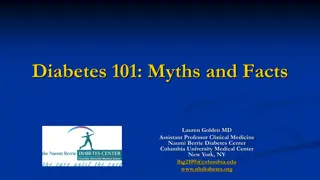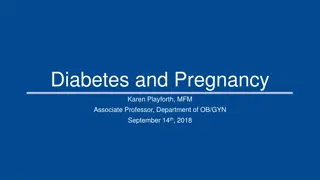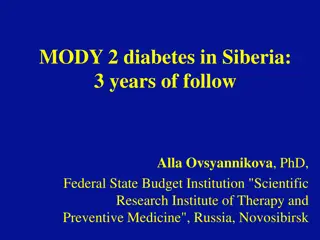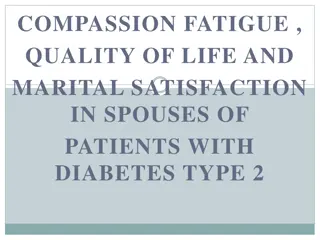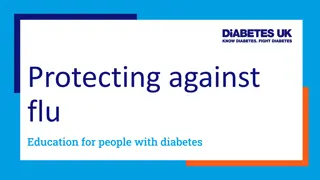
Diabetes in HNF1B Patients - Causes, Symptoms, and Treatment
Learn about why HNF1B patients develop diabetes, the likelihood of diabetes occurrence, treatment options, and the importance of regular testing for complications. Discover insights from Prof. Andrew Hattersley, a diabetes consultant at the University of Exeter.
Download Presentation

Please find below an Image/Link to download the presentation.
The content on the website is provided AS IS for your information and personal use only. It may not be sold, licensed, or shared on other websites without obtaining consent from the author. If you encounter any issues during the download, it is possible that the publisher has removed the file from their server.
You are allowed to download the files provided on this website for personal or commercial use, subject to the condition that they are used lawfully. All files are the property of their respective owners.
The content on the website is provided AS IS for your information and personal use only. It may not be sold, licensed, or shared on other websites without obtaining consent from the author.
E N D
Presentation Transcript
HNF1B and diabetes Prof. Andrew Hattersley Diabetes consultant University of Exeter A.T.Hattersley@exeter.ac.uk
Why do HNF1B patients get diabetes? Do all patients get diabetes? When is diabetes likely? How is the diabetes best treated? Testing for diabetes complications Pancreatic enzymes do they matter?
Why do HNF1B patients get diabetes? HNF1B is important in the development of the pancreas When reduced HNF1B due to genetic change you get a much smaller pancreas. Reduced number of beta-cells that make insulin Too little insulin means blood sugar goes up (Also reduced pancreatic enzymes that digest fat)
Do all HNF1B patients get diabetes? About 50% of patients have diabetes overall Develop later in life so most children don't have diabetes when they do have kidney disease Likely to get when older; very rare to be over 45 without having diabetes Later you get diabetes the less severe the diabetes is but still most people need insulin treatment
When is diabetes likely in HNF1B? Very rarely have diabetes in first few weeks of life (neonatal diabetes) but rapidly goes away. Usually in adolescence or as a young adult Typically 12-30 years Can be as old as 60 If have HNF1B but do not have diabetes: should have regular (yearly) testing for diabetes (HbA1c). Symptoms include thirst and passing a lot of urine
How is HNF1B diabetes best treated? Best treatment depends on how much insulin you are making Most patients make little insulin and need insulin treatment (like Type 1 diabetes) Insulin usually with meals and overnight In early stages tablets can be used and are fine if working but insulin often needed in addition
Testing for diabetes complications Like all types of diabetes need annual check to make sure problems not developing Check - Eyes - Kidneys - Feet - Cholesterol - Blood pressure
Pancreatic Enzymes do they matter? Small pancreas less enzyme secreting cells so less enzymes (faecal elastase reduced) Enzymes are needed for fat digestion Most patients have enough enzyme initially so don t need treatment but with time may need enzyme treatment If problems with fatty meats floating pale, fatty stools, weight loss or abdominal pain will be helped by enzyme treatment with meals.


